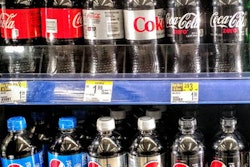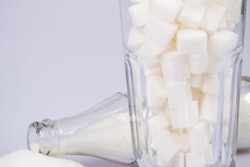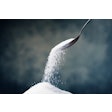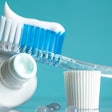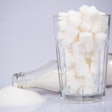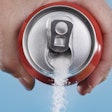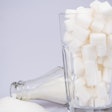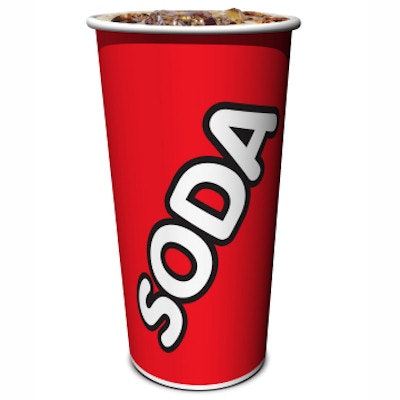
Implementing a proposed U.K. levy on the manufacturers of soft drinks could reduce caries incidence by nearly 270,000 cases a year, according to a recent study published in Lancet Public Health.
The industry's reaction to the levy will determine the policy's effects on health, including caries, the study authors concluded. They modeled various possible responses by the industry and the expected effects on health, with most outcomes leading to improvements in the population's oral health and reductions in the prevalence of obesity and incidence of type 2 diabetes, although the authors cautioned that negative health effects of the levy are possible.
While taxes on soda have been previously introduced in countries such as Mexico, Hungary, and France, the U.K. proposal, which was announced in March 2016, is the first industry levy that's tiered based on the sugar content of beverages, rather than their sales price. The levy is scheduled to be introduced in 2018 if approved by Parliament in 2017. The proposal calls for the following:
“The U.K. soft drinks industry levy has the potential to lead to important improvements in population health, particularly among children.”
- A high tax for drinks with more than 8 grams of sugar per 100 mL
- A moderate tax for drinks with 5 grams to 8 grams of sugar per 100 mL
- No tax for drinks with less than 5 grams of sugar per 100 mL
The levy would be imposed on companies based on the volume of sugar-sweetened drinks that they produce or import. The responses of the industry could include changes to the sugar content of products, pricing, or marketing.
"The U.K. soft drinks industry levy has the potential to lead to important improvements in population health, particularly among children," wrote Adam Briggs, MFPH, and colleagues (Lancet Public Health, December 15, 2016). "Policymakers should engage with stakeholders to encourage responses to the levy that will maximize the potential health benefits of the new policy."
Briggs is a Wellcome Trust research training fellow in population health at the British Heart Foundation Centre on Population Approaches for Non-Communicable Disease Prevention at the Nuffield Department of Population Health at the University of Oxford. His research focuses on modeling the cost-effectiveness of public health policies affecting diet and physical activity.
Effect on consumption could vary
Previous evidence suggests that taxes on soft drinks lead to price increases for the public and subsequent reductions in purchases of these drinks, Briggs and his colleagues wrote. However, different responses to the proposed U.K. levy on the soft drink industry will have different effects on consumption patterns and will determine its effects on health.
With that in mind, researchers from the University of Oxford estimated the effects on caries, obesity, and diabetes of three possible industry responses to the tax:
- Reformulation of beverages to reduce sugar concentration
- Increasing product prices
- Changing the market share of high-, mid-, and low-sugar drinks
The magnitude of each response is uncertain, so the researchers modeled better- and worst-case scenarios for each. The better-case reformulation model assumed that industry would reduce the sugar concentration of high-sugar drinks by 30% and mid-sugar drinks by 15%. The worst case assumed a 5% reduction in sugar concentration of high- and mid-sugar drinks.
"Each of the three responses modeled could lead to important health gains with industry likely to react to the levy using a combination of all three," the authors wrote.
The model included data on sales and consumption of sugar-sweetened beverages, disease incidence and prevalence, price elasticity estimates, and estimates of the association between sugar-sweetened beverage consumption and disease outcomes.
The proposed U.K. levy gives manufacturers the option of passing its cost on to consumers through product price increases.
The better case for a price increase assumed that 50% of a price increase would be passed on to consumers of sugar-sweetened beverages and that prices would not increase by more than 20%. However, the worst case assumed that the tax was evenly passed on to consumers of all soft drinks, which include diet and sugar-sweetened beverages, fruit juice, and bottled water, resulting in a 6% price increase for all of these products.
According to the study results, the largest decreases in consumption of sugar from sugar-sweetened beverages will be seen in 11- to 18-year-olds, and even more so in boys of this age, since this group consumes the largest volume of these beverages. The greatest gains for oral health and reduction in obesity rates are expected among 11- to 18-year-olds, with the greatest decreases in diabetes incidence among those older than 65.
All the scenarios modeled except for the worst case for market share resulted in a reduction in sugar intake from sugar-sweetened beverages and subsequent reductions in incidence of caries and type 2 diabetes and a reduction in the prevalence of obesity. The reduction in sugar intake was greatest for the better case for reformulation.
The best outcome for oral health, as well as for obesity and diabetes, also involved reformulation and was estimated to reduce annual decayed, missing, or filled teeth (DMFT) incidence by 269,375 cases or 4.4 per 1,000 person-years. This rate increased to 7.0 per 1,000 person-years in girls ages 11 to 18 years and 10.3 in boys of that age.
However, estimates of oral health gains were lower for other scenarios the researchers modeled, with the worst case for a change in market share predicting an annual DMFT increase of 16,401 or 0.3 per 1,000 person-years, with a rate of 0.4 among girls ages 11 to 18 years and 0.6 among boys in that age range.
| Reduction in DMFT in U.K. based on soda tax scenarios | |
| Scenario | Reduction cases (per 1,000 person-years) |
| Better-case reformulation | 269,375 (4.4) |
| Worst-case reformulation | 49,036 (0.8) |
| Better-case price change | 149,378 (2.4) |
| Worst-case price change | 64,240 (1.1) |
| Better-case market share | 172,718 (2.8) |
| Worst-case market share | -16,401 (-0.3) |
Industry response unknown
As there is uncertainty as to how the soft-drink industry will respond to the tax, the authors suggested that their results should be read not as precise estimates but used to compare the relative effects of different scenarios.
The study also did not model results for various subgroups, such as differences in socioeconomic backgrounds, which could have different baseline consumption levels and respond differently to each industry response simulated. Nevertheless, the authors believe it to be the first study to examine the potential health effects of the proposed tax.
"Our analyses show that substantial health benefits could occur if the levy stimulates reformulation," they concluded. "Further important health benefits from price changes will be mitigated if industry spread the price increase across the entire portfolio. Increases in market share for mid-sugar and low-sugar drinks could have substantial health benefits, but only if the market share comes at the expense of high-sugar drinks rather than people shifting from low-sugar to mid-sugar drinks."




